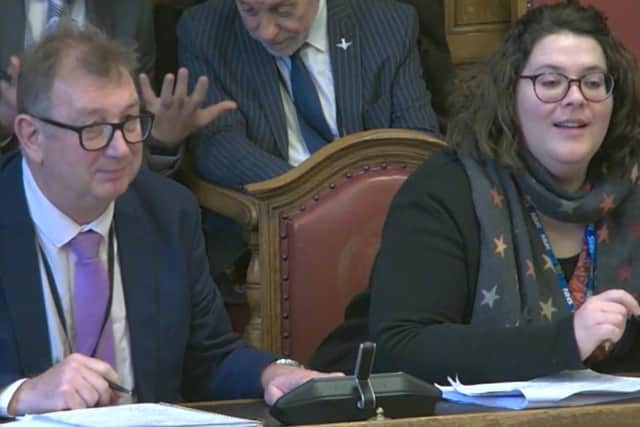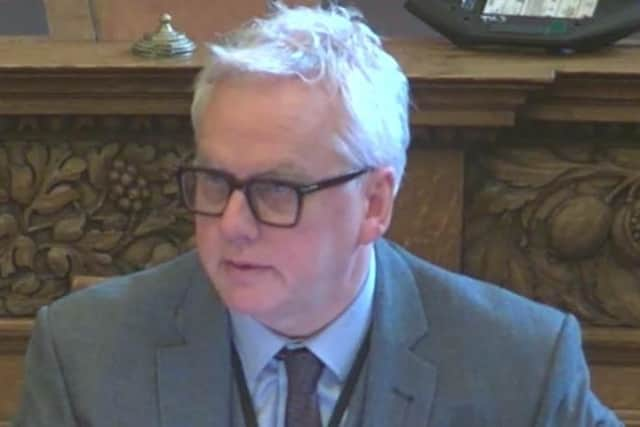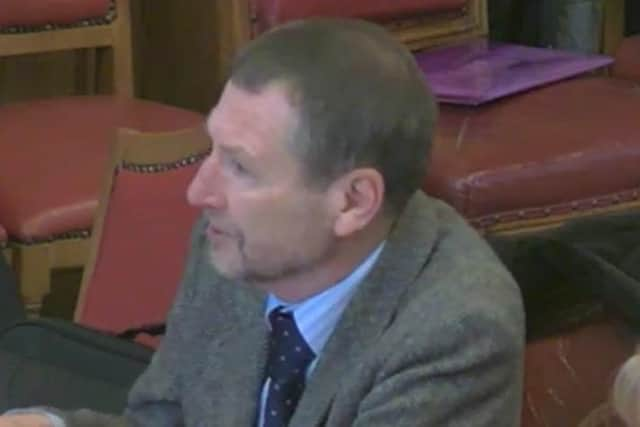New Sheffield mental health strategy promises lifelong support and care
and live on Freeview channel 276
The Sheffield All-Age Mental and Emotional Health and Wellbeing Strategy has been co-produced by Sheffield City Council, NHS and voluntary sector organisations, plus service users and groups, including children and young people.
Tim Gollins, city council assistant director for access services, mental health and wellbeing, introduced the strategy at a meeting of the council’s education, children and families policy committee.
Advertisement
Hide AdAdvertisement
Hide AdHe said: “The vision for Sheffield is that there is good emotional health and wellbeing for all at every stage of life. The key message in the strategy is that we want a positive ambition and focused outcomes for people around mental health and wellbeing.”


He said it takes an evidence-based approach and recognises that what happens in childhood has a significant impact on adulthood.
A report to the committee on the strategy said: “The scale of mental and emotional health and wellbeing need in Sheffield is great.
Carers
“We know that 138,000 children, young people and adults in Sheffield will experience a health problem each year and it is estimated that 15,000 children and young people live with a parent who lives with a mental health disorder. Many will be young carers.
Advertisement
Hide AdAdvertisement
Hide Ad

“The proportion of homeless people in Sheffield with a diagnosed mental health condition (63%) is over double that of the general population (around 25%). In addition, there are approximately 7,000 people living with dementia in Sheffield – just over 1% of the whole city’s population.”
It said that nationally half of all mental health problems are established by the age of 14, rising to 75 per cent by age 24. One in four 17-to-19-year-olds in England had a probable mental disorder in 2022 – up from one in six in 2021.
Louisa King, head of commissioning for NHS South Yorkshire Integrated Care Board, said the strategy partly covers NHS services but embraces a range of others, including making sure teachers have the tools to support children in schools.


Coun Colin Ross asked about making sure services cover the transition from youth to adulthood, adding: “We get casework on a continuing basis where people fall between the cracks.
Advertisement
Hide AdAdvertisement
Hide Ad“I’m asking for further reassurance that ‘all age’ will do exactly what it says on the tin, that it is a smooth, even transition.
Break
“Is it all linked up between the young people’s services and adult services, so that there won’t be that break, where parents and a young person have to tell the whole story again to another set of professionals, and they will feel supported right through.”
He endorsed the idea of early intervention, so that issues can be tackled early on rather than continuing into adulthood.
Tim Gollins and Louisa King both said that work has been done to improve those transitions but that more has to be put in place. Ms King said they are looking at support teams for schools.
Coun Peter Garbutt said that climate anxiety – worrying about how climate change will affect the future – is becoming more widespread among young people.
Coun Mary Lea asked how services pick up on young people who are suffering from mental health issues in silence. She believed that must have increased as a result of the pandemic.
Director of children’s services Andrew Jones said it is an emerging issue: “For example, I visited a school about a month ago and I looked in particular at their nursery. We were outdoors and there were lots and lots of active children.
Advertisement
Hide AdAdvertisement
Hide Ad“What I didn’t realise until the headteacher pointed it out to me was none of them were actually taking to each other and that’s because of the impact of being at home and on their own.”
